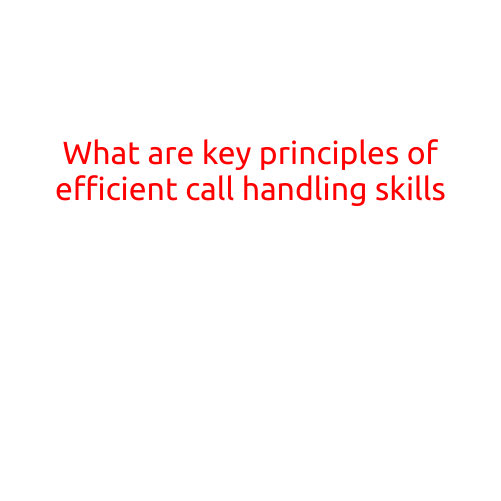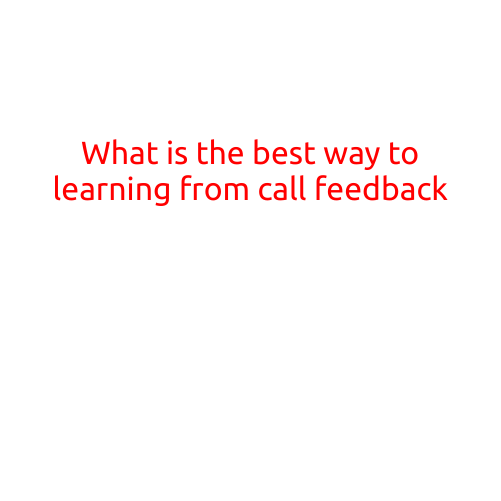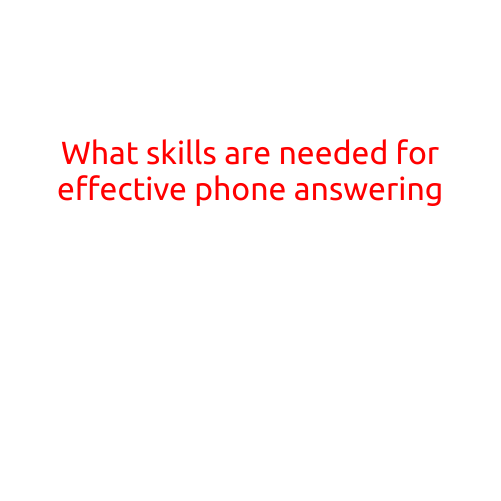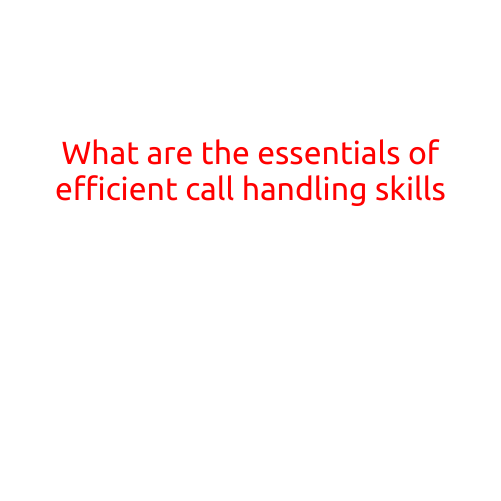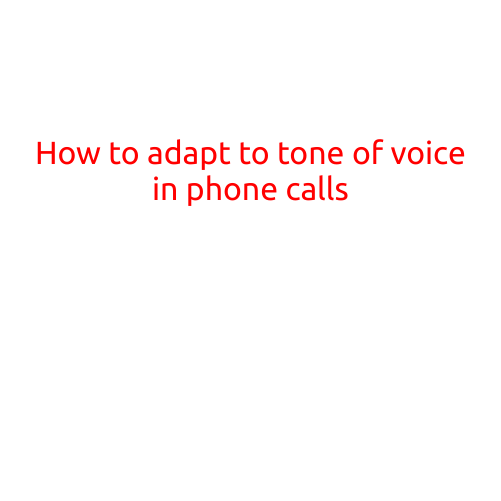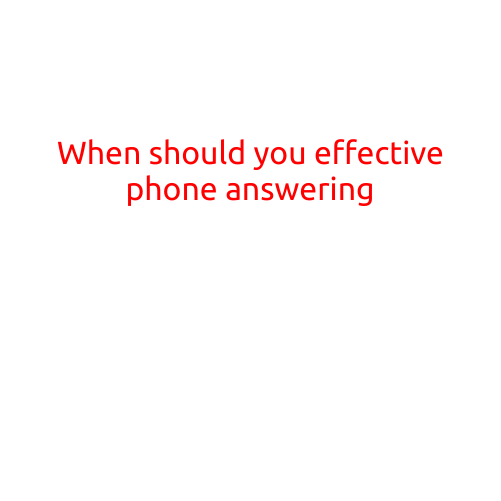
When Should You Practice Effective Phone Answering?
In today’s fast-paced world, the art of answering phone calls has become a vital part of professional communication. With the constant influx of calls, emails, and messages, it’s crucial to master the skill of effective phone answering. But when should you practice this essential technique?
The Importance of Effective Phone Answering
Effective phone answering is more than just picking up the phone and saying “hello.” It’s about creating a positive impression, building trust with the caller, and setting the tone for a productive conversation. When you answer the phone effectively, you:
- Enhance customer satisfaction
- Increase the chances of converting calls into sales or leads
- Demonstrate professionalism and attention to detail
- Improve communication and reduce misunderstandings
When Should You Practice Effective Phone Answering?
You should practice effective phone answering at all times, but here are some specific situations where you’d benefit from perfecting this skill:
- During Peak Hours: When the phone is ringing non-stop, clarity and efficiency are essential. Practice effective phone answering to stay focused and deliver excellent service to your customers.
- During Initial Conversations: When you’re speaking with a potential client, customer, or colleague for the first time, first impressions matter. Effective phone answering can help you build rapport and establish trust from the get-go.
- When Handling Urgent Calls: In situations where timing is crucial, such as emergency situations or deadlines, effective phone answering ensures that you address the caller’s concerns promptly and efficiently.
- When Dealing with Difficult Calls: Whether you’re handling complaints, concerns, or frustrations, effective phone answering can help you remain calm, composed, and professional, even in challenging situations.
- During Training or Onboarding: When you’re new to a role or transitioning to a new team, effective phone answering is crucial to familiarize yourself with the company’s policies, procedures, and tone.
Tips for Effective Phone Answering
To help you master the art of effective phone answering, here are some valuable tips:
- Use a clear and professional tone: Speak clearly, slowly, and confidently, ensuring that your voice is polished and professional.
- Listen actively: Pay attention to the caller’s concerns, and respond promptly and thoughtfully.
- Use a standardized greeting: Develop a consistent greeting to create a sense of familiarity and professionalism.
- Practice active listening: Repeat the caller’s concerns to ensure understanding and show that you’re actively listening.
- Maintain a calm and composed demeanor: Stay calm, even in stressful situations, and focus on resolving the caller’s concerns.
Conclusion
Effective phone answering is a critical skill that can make a significant impact on your professional relationships and customer satisfaction. By recognizing the importance of this technique and practicing it regularly, you’ll be better equipped to handle calls with confidence and precision. Remember to practice effective phone answering during peak hours, initial conversations, urgent calls, difficult situations, and during training or onboarding. With these tips and a solid understanding of the benefits, you’ll be well on your way to delivering exceptional phone service.

